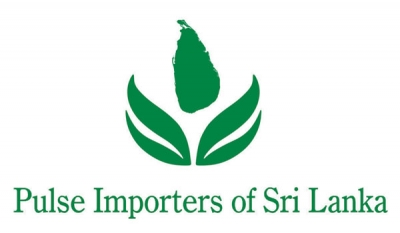IYP (International Year of Pulses) promotes the consumption of pulses to attain healthy lifestyle void of non communicable diseases such as diabetes, high blood pressure and obesity.
The heightened production of pulses would lead to the opulence of edible seeds as a result of which the elimination of malnutrition and hunger can be achieved.
Thus, it contributes towards food security and sustainable food production in the world.
Soil fertility and mitigation of climate change menaces are favorable environmental impacts of promoting global production of pulses.
IYP seeks to foster enhanced research on the field and address the challenges encountered by the traders of pulses.
What are pulses?
Pulses are edible seeds of legume species and are grown in pods.
Pulses such as Dhal, chickpeas, Moong beans and kidney beans are widely consumed in Sri Lanka.
Health benefits of pulses
Pulses are a rich source of protein, fiber, vitamins and minerals (magnesium, potassium, phosphorus, zinc) and help cure ailments associated with the alimentary cannel such as indigestion and constipation.
Pulses contain iron and zinc in high quantities and regular intake can help prevent anemia.
Due to high content of protein, pulses are the best alternative of source of protein for vegetarians and for those animal protein sources are economically or physically not viable.
Pulses are low in fat and reduce the cholesterol level and help combat obesity which is a common health and beauty challenge faced by many junk food eaters.
Long-term benefits of consumptions of pulses are the elongated youth and increased life expectancy.
Adverse health impacts associated with junk food
Today’s generation is ignorant of the fact that partake of nutritious food is the key to energetic and disease- free life.
App obsessed and tech savvy generation rely more on instant and more often unhealthy food to merely fill their stomachs.
Unwholesome food habits will lead to various illnesses and discomforts. Performing activities of day-to-day life would take place in a retarded rate and feeling of exhaustion would prevail.
Impacts of unhealthy food style can be mitigated by adopting healthy way of eating. Pulses are essential ingredients of a balanced and healthy diet.
Animal-based dietary proteins
Unlike plant-based dietary proteins, animal based proteins have detrimental effects on the human health.
Researchers have brought to light that high consumption of meat can induce cancer, kidney ailments and other diseases such as high blood pressure and obesity.
Saturated fat present in meat has deleterious effects such as increasing the risk of heart disease.
Although protein is essential for growth, consumption of animal-based proteins can cause premature puberty.
As animal proteins are highly inflammatory, it can cause various bodily discomforts.
Life expectancy of a consumer of animal-based dietary protein is comparatively lesser than the person who partakes of plant-based dietary proteins.
Pulses and food security
Either depletion of nutritional value or rotting does not occur in the action of storing these dry seeds.
Thus, pulses can be stored for an elongated period.
This increases food availability between harvests and assures food security.
Some pulses can be cultivated in not so fertile and semi-arid lands where other crops have little chance of growing.
The environment factor
Human activities have led to multitudes of environmental issues such as climate change and loss of biodiversity.
The IYP fosters enhanced research in the relevant fields to find solutions and to mitigate environment problems.
And also by encouraging mass production of pulses, IYP supports the sustainable agricultural practices.
As pulses are leguminous plants, the nitrogen-fixing properties help enhance the soil condition which result in high fertility of lands.
Crop rotation in leguminous crop cultivation helps control pests in a natural manner without making use of synthetic fertilizers.
Reduced or zero use of synthetic fertilizers help mitigate adverse effects of climate change.
Some species of pulses have the capability of freeing soil-bound phosphorus which provides nutrition to the plants.
Apart from the nitrogen-fixing and phosphorous-freeing properties, pulses help enhance organic matter and microbial biomass in the soil.
This improves the water retention capacity and prevents soil erosion.
Pulses are highly genetically diversified and can be applied in sustainable agricultural practices such as crop rotation, intercropping and cover crop.
The current trends in pulses market and trade
It is anticipated that international trade of pulses would attain a rapid and optimum growth with the awareness campaigns carried through internationally with the announcement of the International Year of Pulses.
As as a result of increased awareness, worldwide pulses consumption is expected to grow rapidly.
It is predictable that the international trade in pulses will have a continued growth with the increased awareness campaigns.
Although, Canada and Australia are the market-leaders of pulses export trade, other developed and developing countries will tend to import pulses in fulfilling the nutritional needs.
Photo Caption
The Pulse Importers of Sri Lanka in affiliation with the Essential Commodity Importers and Traders Association hosted a press conference to celebrate 'International year of Pulses - 2016', that was held on the 15th February, 2016 at the Cinnamon Lakeside, Colombo.
Seated from the extreme left corner: Mr. A C Mahmud, Mr. Manjula Lenaroll, Mr. Hemaka Fernando and Mr. N. Selvaraj (Organizers of Pulse Festival Sri Lanka)























